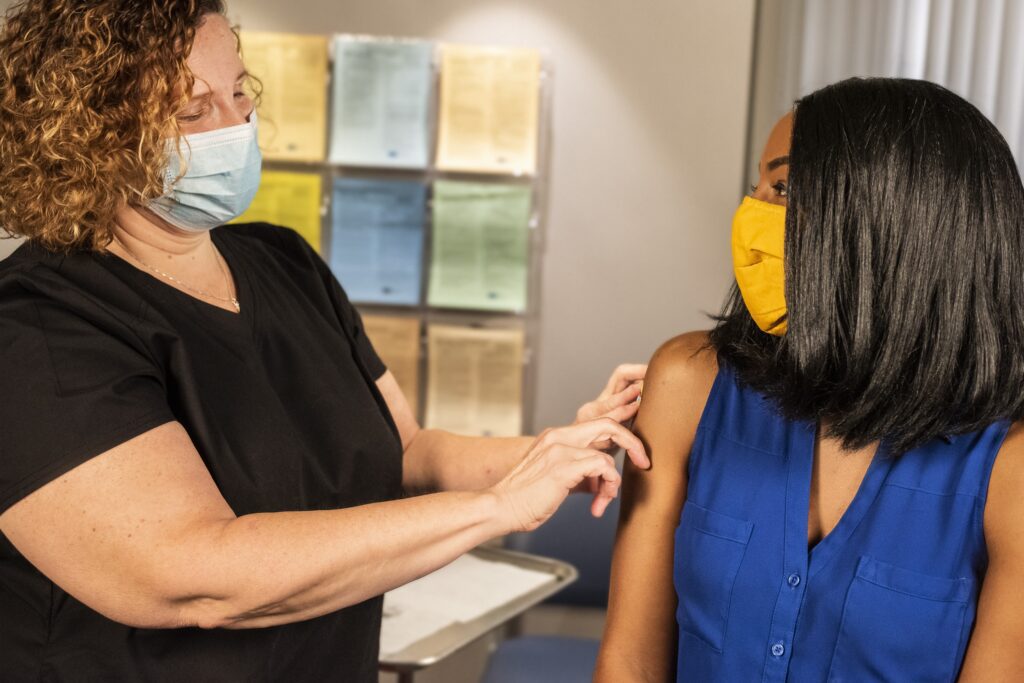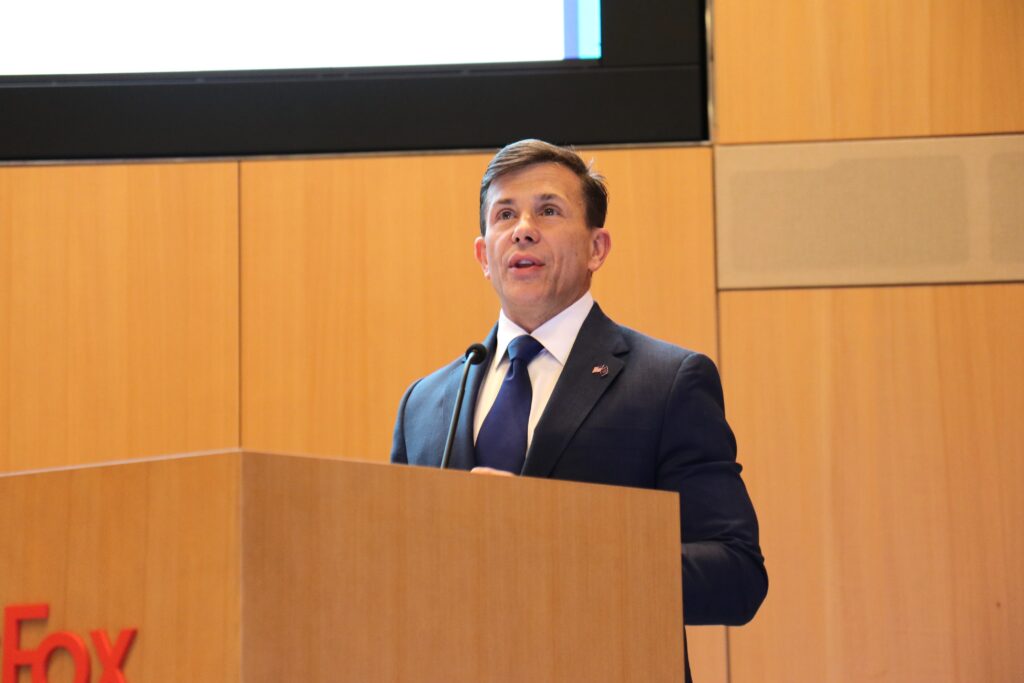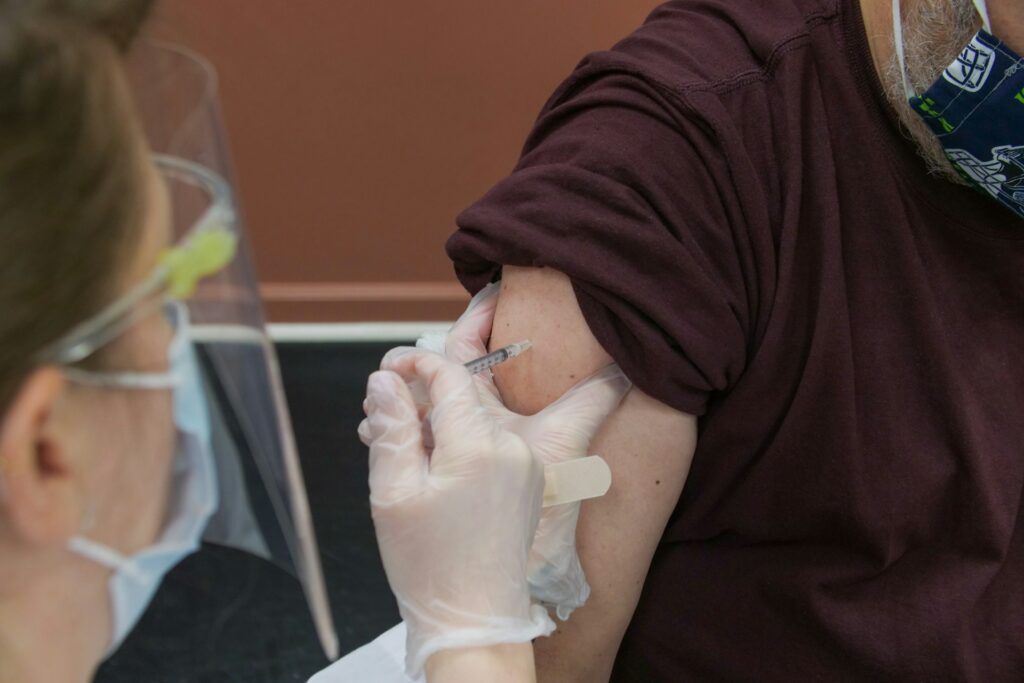“We all just went through a pandemic together,” began Phyllis Arthur, Vice President of Infectious Disease & Emerging Science Policy at the Biotechnology Innovation Organization (BIO).
“And during the COVID pandemic, we tried to immunize millions of adults all at one time with very little infrastructure. How can we take that learning—both the scientific learning we’ve done in terms of developing really efficacious vaccines, but more importantly, what we learned about vaccinating adults and talking to adults about the importance of getting vaccinated—and turn that into more vaccines, more access, and ultimately more protection and better health for adults around the world?”
On the final day of the 2023 BIO International Convention, she moderated a panel about this very topic, The Time is Now: Turning up the Dial on Adult Immunization Across the Globe.
The panel would come to this conclusion: when it comes to the routine adult vaccine schedule, it’s time for a paradigm shift. By 2030, the number of people who will be over 60 is going to be 1.4 billion people. However, the method of treating adults is largely responsive rather than preventative within the vaccine space.
Rethinking the adult vaccine schedule
“Businesses, employers, finance ministers, not just the health care world…should be interested in life course immunization,” said Michael Hodin, Ph.D., CEO of the Global Coalition on Aging and Managing Partner at High Lantern Group. “Because it is about not only healthy aging but the economic and productivity values that will come with that.”
An interesting idea companies like GSK and Merck (among others) are actively working to make a reality is a fundamental reworking of the adult vaccine schedule. Within the pediatric space, the vaccination schedule is clear and delineated. But in the adult space, it becomes considerably more muddied.
“In the United States, we have quite good immunization rates of our infant population,” said Judy Stewart, SVP and Head of U.S. Vaccines at GSK. “But as we age, and we want to engage in a more healthy way than we have in the past and live longer, we need to start focusing on how to get that same kind of routine, systematic immunization in order to improve the immunization rates of our adults.”
As Hodin put it: “If you have osteoporosis or a stroke or Alzheimer’s, etc., you’re a patient. When it comes to vaccines, you’re a citizen.”
But to change the paradigm and the mentality around adult routine immunizations, there has to be conversation politically, socially, financially, and medically.
“We have more systems, we have more mandates, we have more infrastructure, but I think a big part of expanding adult vaccinations is a mind shift that needs to happen,” said Stewart. “Not just with people who want to be vaccinated, but also with their providers, whether that’s at a pharmacy or whether it’s at an office setting with our healthcare professional.”
The trusted messenger
One place that mindset has room to evolve, the industry has found, is through trusted messengers and community partnerships.
We learned from COVID “you can’t just do top down, you also have to do bottom up,” said Art Hirt, SVP of the Vaccines Business Unit at Merck. “So, we are now asking, who are the trusted messengers in the community? Who is there to educate, build awareness, and build vaccine confidence among adults?”
“We have a lot of innovation that is exploding in the adult immunization space, and that’s wonderful, but the least effective vaccine is the one that you don’t get,” said Stewart. “We have to figure out how to solve for apathy, lack of understanding, and lack of awareness around what people should be getting and when they should be getting it.”
Each panelist’s organization is working to build relationships with trusted community messengers big and small. Merck launched the Adult Vaccine Access Coalition (AVAC) in 2015. GSK launched Vaccine Track in the wake of the COVID pandemic and partnered with Magic Johnson for Sideline RSV. Meanwhile, the Global Coalition of Aging has a cardiovascular health project that partners with local governments and communities to improve health metrics among seniors. UBER also worked with them during the COVID pandemic to help improve vaccine access.
The panel was energized and focused on solving the problem of adult vaccination uptake. Throughout the 2023 BIO International Convention, companies and stakeholders have been meeting to take real steps to see forward these lofty goals discussed all week.
And one goal is clear: Routine adult vaccination schedules are a priority. And to reach that goal, we need more sites of care, no out-of-pocket costs for vaccines, and the help of trusted messengers.




